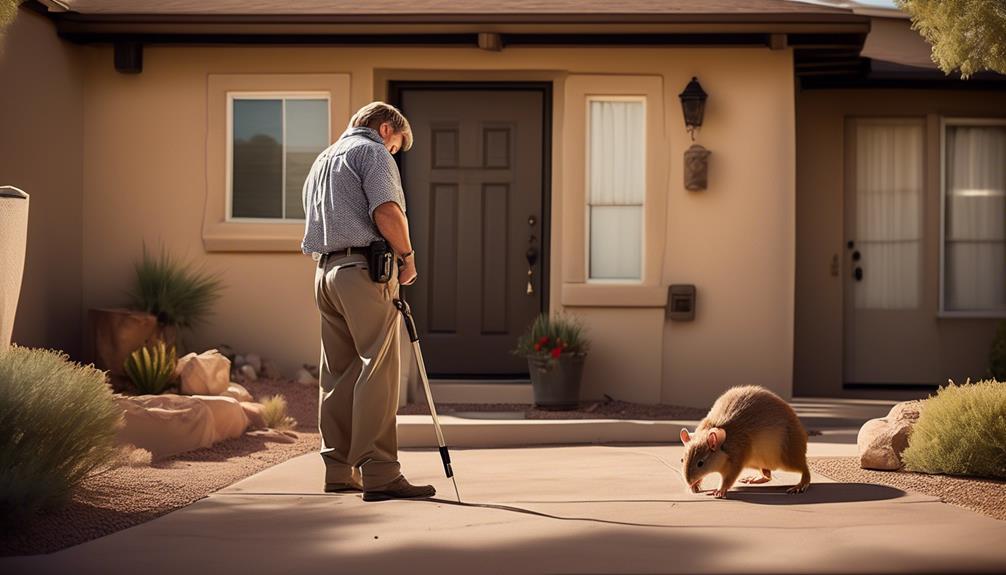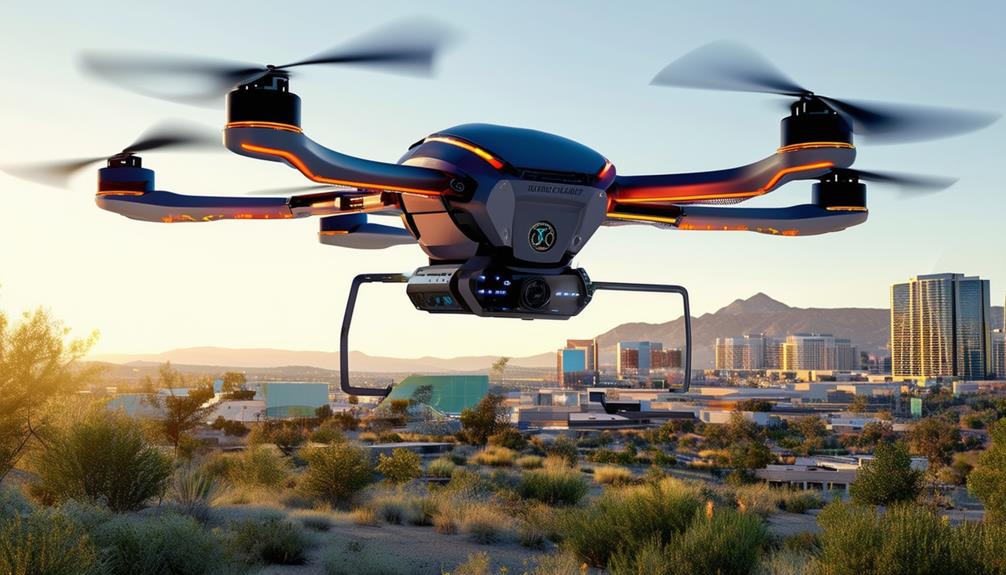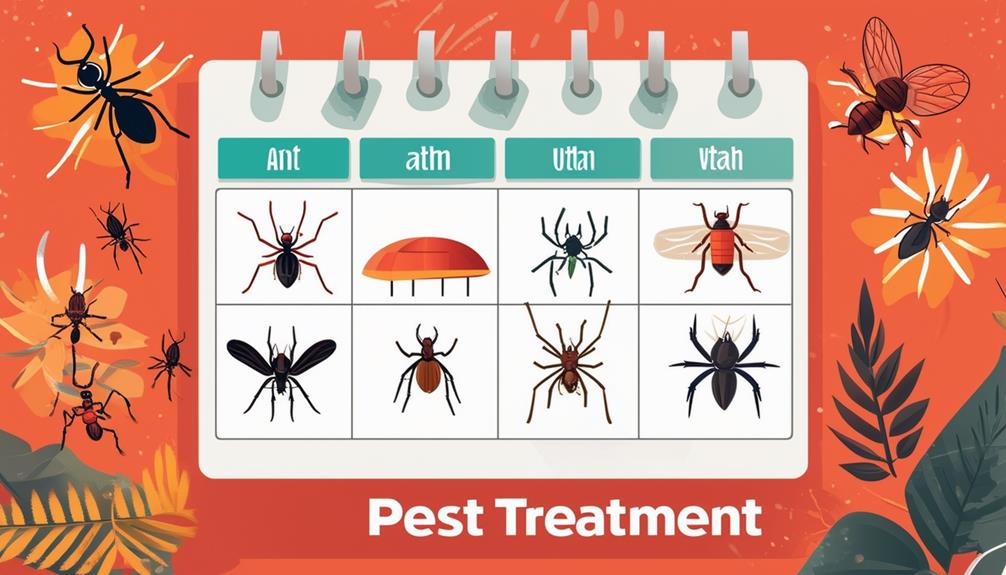Are you tired of dealing with pesky rodents in your St. George Utah rental property? Well, buckle up because we’ve got some news for you.
Rodent control is not just a suggestion, it’s your responsibility as a landlord. Now, before you start panicking, let’s dive into the details of what you need to know and how you can ensure a rodent-free environment for your tenants.
Trust us, it’s not as daunting as it may seem, and the rewards are well worth it.
Key Takeaways
- Landlords in St. George, Utah have legal responsibilities for rodent control in rental properties.
- Signs of rodent infestation in rental properties include droppings, gnaw marks, and strange noises.
- Prompt action should be taken if any signs of rodent activity are noticed, and professional pest control services should be sought for an effective solution.
- Preventive measures such as sealing off entry points, regular inspections, cleanliness, and strategic placement of traps or bait stations can help control rodents in rental properties.
Understanding Landlord Responsibilities
As a landlord, it’s crucial for you to have a comprehensive understanding of your responsibilities when it comes to rodent control in rental properties in St. George, Utah. Your obligations as a landlord extend beyond simply providing a safe and habitable living environment for your tenants.
In St. George, there are specific legal requirements that you must adhere to regarding rodent control. It’s your responsibility to ensure that your rental property is free from rodents and take necessary measures to prevent infestations. This includes conducting regular inspections, sealing any entry points, and implementing effective pest control measures.
Failure to fulfill these obligations can lead to tenant dissatisfaction, health hazards, and potential legal consequences. By staying informed about the legal requirements and taking proactive steps to address rodent control, you can fulfill your duty as a responsible landlord and maintain a healthy living environment for your tenants.
Identifying Signs of Rodent Infestation
To effectively address rodent control in your rental property, it’s important to be able to identify the signs of a potential infestation. By recognizing these signs early on, you can take proactive measures to prevent further damage and potential health risks for your tenants.
There are several key indicators to look out for. Firstly, droppings are a clear sign of rodent activity. Keep an eye out for small, dark pellets in areas where rodents are likely to be present, such as kitchens, attics, and basements.
Additionally, gnaw marks on furniture, wires, and walls can indicate a rodent infestation. Strange noises, like scratching or scurrying sounds, can also be a red flag.
If you notice any of these signs, it’s important to address the issue promptly. While there are some rodent control methods that you can try yourself, such as setting traps or sealing entry points, it’s recommended to seek professional pest control services to ensure a thorough and effective solution.
Implementing Preventive Measures
To effectively prevent rodent infestations in rental properties, it’s important to implement a range of preventive measures.
There are several rodent prevention methods and rodent control strategies that can be employed to keep these pests at bay.
First, ensure that all entry points, such as cracks and holes, are sealed off to prevent rodents from gaining access to the property.
Regularly inspect the property for any signs of rodent activity, such as droppings or gnaw marks, and take immediate action if any are found.
Keep the property clean and free of clutter, as rodents are attracted to food sources and nesting areas.
Additionally, consider using traps or bait stations strategically placed around the property to catch and eliminate any rodents that may have already infiltrated.
Taking Prompt Action for Rodent Control
When it comes to maintaining a rodent-free environment in your rental properties, it’s crucial to take prompt action for effective rodent control. A quick response is essential to prevent these pests from causing damage and spreading diseases to your tenants.
As a responsible landlord, it’s important to address any signs of rodent infestation immediately. Hiring professional exterminators is highly recommended as they’ve the expertise and tools to handle the situation efficiently. They can identify entry points, set up traps, and implement preventive measures to ensure long-term rodent control.
Professional exterminators also have access to safe and effective rodent control products that aren’t available to the general public. By taking prompt action and involving professionals, you can ensure the well-being of your tenants and protect your rental properties from further damage.
Maintaining a Rodent-Free Rental Property
Maintaining a rodent-free rental property requires consistent vigilance and proactive measures. Implementing effective rodent control strategies is essential to ensure the comfort and safety of your tenants.
Regular inspections of the property, both inside and outside, can help identify any signs of rodent activity. Seal all potential entry points, such as cracks and gaps in walls, floors, and windows, to prevent rodents from entering the premises.
Additionally, proper sanitation practices, such as storing food in sealed containers and disposing of garbage regularly, can minimize attractants for rodents.
While these preventive measures are crucial, it’s also advisable to hire professional pest control services. They have the necessary expertise and tools to address any existing rodent infestation and provide ongoing maintenance to keep your rental property rodent-free.
Frequently Asked Questions
How Often Should a Landlord Conduct Inspections for Rodent Infestations in Rental Properties?
You should conduct inspections for rodent infestations in your rental properties regularly. This is an important part of your responsibilities as a landlord. By doing so, you can identify and address any potential issues promptly and implement best practices for rodent prevention.
What Are Some Common Mistakes That Landlords Make When Trying to Prevent Rodent Infestations?
You need to know the common mistakes landlords make when trying to prevent rodent infestations. Don’t worry, we’ve got you covered. Here’s a comprehensive guide to help you avoid those pesky critters.
Can Tenants Be Held Responsible for Rodent Infestations in Rental Properties?
As a tenant, you may wonder if you can be held responsible for rodent infestations in rental properties. It’s important to understand that while landlords have obligations to control pests, tenant liability can arise if you contribute to the infestation through negligence or unsanitary behavior.
Are There Any Specific Regulations or Guidelines That Landlords in St. George, Utah Need to Follow Regarding Rodent Control?
As a landlord in St. George, Utah, it’s important to be aware of your obligations and the local regulations regarding rodent control. Understanding and following these guidelines will help ensure a pest-free rental property.
What Are the Potential Health Risks Associated With Rodent Infestations in Rental Properties, and How Can Landlords Mitigate These Risks?
To mitigate potential health risks associated with rodent infestations in rental properties, landlords need to take responsibility. Keep the property clean, seal any entry points, and consider professional pest control services. Safety first!




